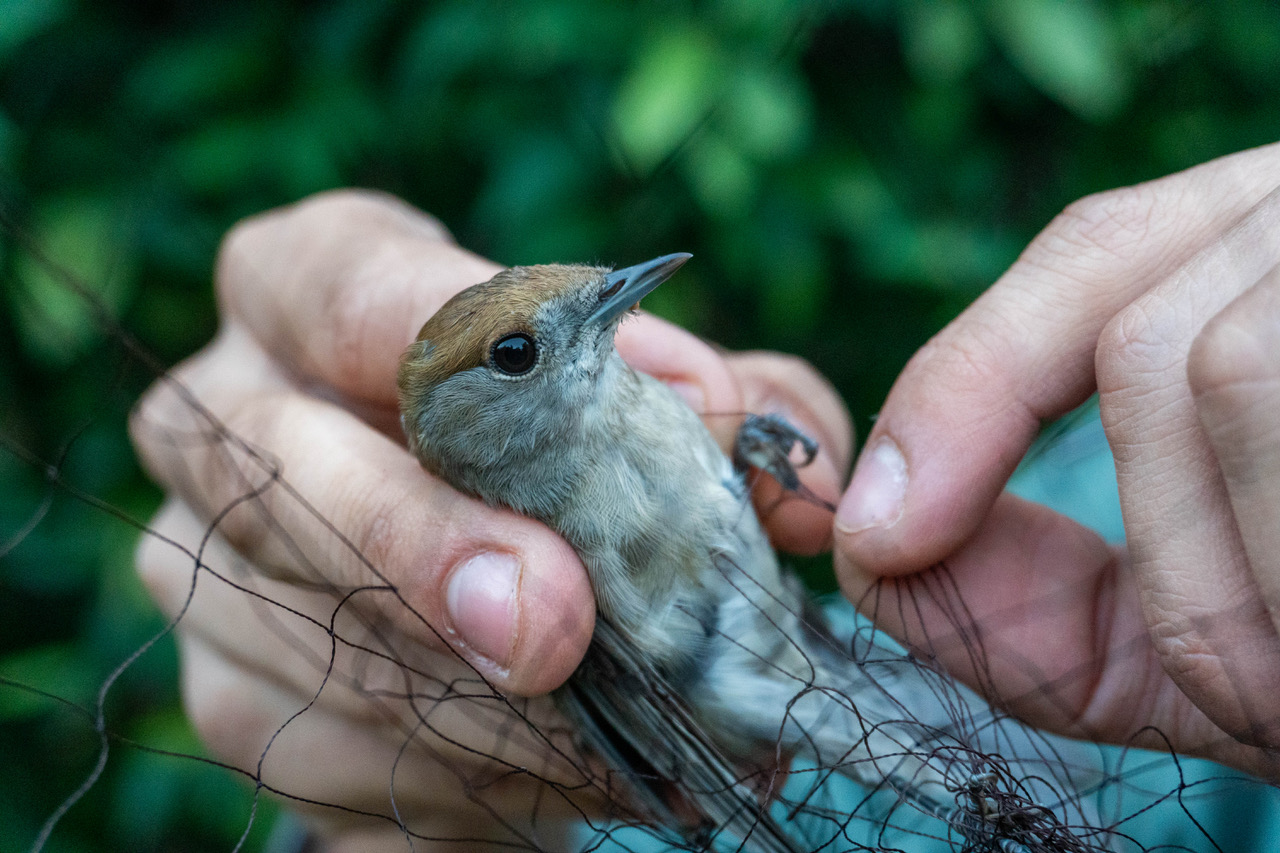Conservationists have raised alarms over a 90 per cent surge in illegal bird trapping across the Republic of Cyprus, particularly during September, a crucial month for songbird migration.
The Committee Against Bird Slaughter (CABS) has reported a significant rise in the number of active trapping sites, with 71 discovered this year compared to just 37 during the same period in 2023.
CABS spokeswoman Stefania Travaglia revealed that their monitoring efforts, in collaboration with police and game wardens, resulted in the confiscation of 882 limesticks, 51 nets, and 40 illegal bird-calling devices. She added that during the operations with the police and the game wardens a record number of 552 freshly caught birds were found alive and subsequently released. “Most of the birds were Blackcaps – Ambelopoulia – but we also rescued dozens of protected owls, shrikes, warblers, nightingales and other songbirds,” the spokeswoman noted.
The illegal trapping of birds has escalated dramatically, especially in hotspot areas like Maroni, Arradippou and Avgorou, said Travaglia. Thanks to swift action from authorities, 25 men were convicted, but the sheer scale of the problem means that much of the illegal activity remains unchecked according to CABS.
CABS council member, Dr Andrea Rutigliano said “Bird poaching is widespread, and, in many areas, it is still a free-for-all because without reports from NGOs little proactive enforcement efforts are being conducted there.”
The organisation expressed frustration with the re-established Anti-Poaching Unit of the Cyprus Police, which they claim is not focusing enough on bird poaching despite it being one of the most prevalent wildlife crimes in the country. Dr Rutigliano questioned why local police and game wardens continue to lead investigations when the Anti-Poaching Unit exists specifically for this purpose.
CABS also pointed out that game wardens from the Game & Fauna Service lack the authority and equipment to effectively deal with poachers, some of whom make significant profits, amounting to tens of thousands of euros, from the illegal bird trade.
Earlier this year, a joint press release from BirdLife Cyprus, RSPB, and CABS estimated that approximately 435,000 birds, including migratory and threatened species, were illegally trapped and killed in nets and on limesticks during the previous autumn alone. The organisations attributed this alarming figure to the increased activities of organised groups of bird trappers, a relaxation of laws leading to significantly reduced penalties, and understaffing within the British base police.







Click here to change your cookie preferences